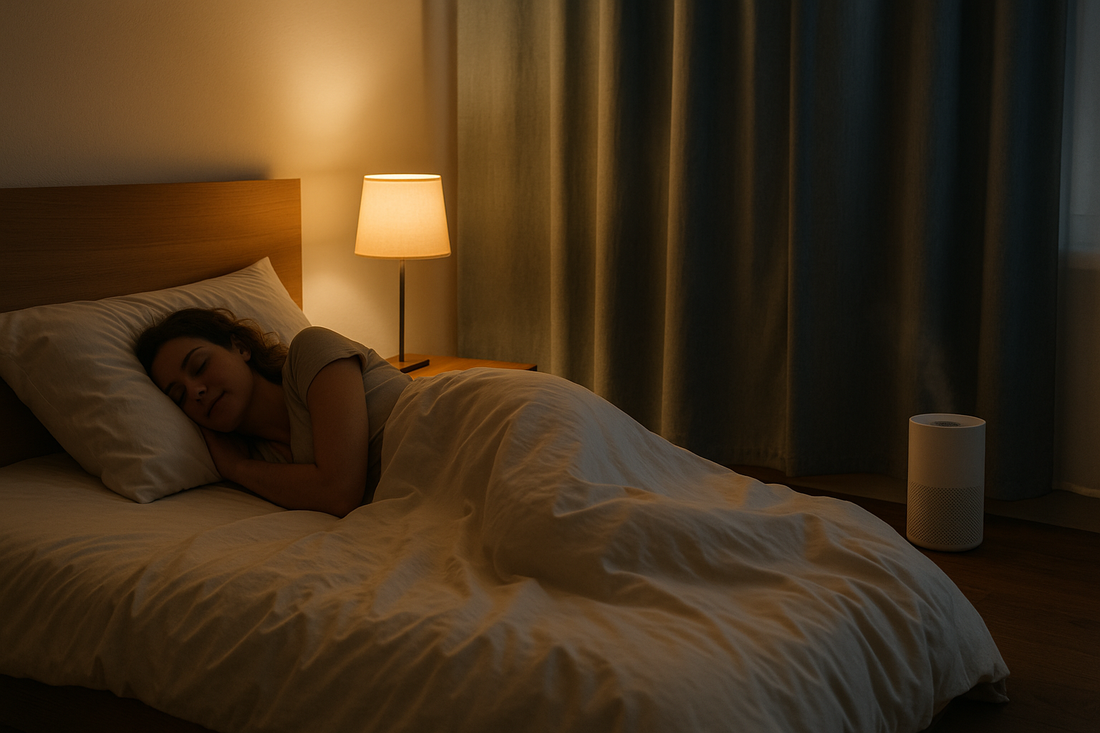
The Link Between Air Quality and Better Sleep
I. Introduction
Quality sleep is a cornerstone of overall health, yet many people overlook one of the most significant factors that influence it—indoor air quality. Recent studies have revealed a strong connection between air quality and sleep, showing that cleaner air contributes to deeper rest and improved recovery.
II. How Air Quality Impacts Sleep
Air quality directly influences how easily we breathe during the night.
• Particulate matter: Fine dust and smoke can irritate the airways, leading to disrupted breathing.
• Indoor pollutants: Household chemicals, furniture off-gassing, and volatile organic compounds (VOCs) can accumulate in closed spaces.
• Allergens: Pollen, dust mites, and pet dander often trigger allergies that cause restless nights.
👉 Learn more with our Air Quality Monitors to track and manage your indoor environment.

III. Signs of Poor Air Quality Affecting Sleep
• Breathing difficulties – Frequent coughing, congestion, or dryness during the night.
• Nighttime allergies – Sneezing, itching, or watery eyes while trying to rest.
• Restlessness – Interrupted sleep cycles or waking up feeling fatigued.
IV. Improving Air Quality for Better Sleep
• Air purification techniques: HEPA filtration systems remove up to 99.97% of airborne particles.
• Best purifiers for bedrooms: Compact, quiet models are the best air purifiers for better sleep.
• Room setup: Place purifiers near the bed, avoid clutter, and ensure balanced humidity.
👉 Explore our Air Purifiers for Bedroom and HEPA Air Purifiers collections for effective solutions.
V. Scientific Evidence
Research demonstrates the link between clean air and sleep quality:
• Studies show that reducing airborne allergens improves deep sleep stages.
• Cleaner air lowers nighttime respiratory stress, supporting healthier oxygen intake.
• Physiological responses such as reduced heart rate variability have been observed in cleaner indoor environments.
VI. Practical Tips for a Better Sleep Environment
• Ventilation: Open windows periodically to refresh indoor air.
• Purifier selection: Choose devices with HEPA and carbon filters for maximum benefit.
• Natural methods: Indoor plants and humidity balance also contribute to a fresher environment.

VII. Conclusion
The connection between air quality and sleep improvement is clear: cleaner air reduces breathing disruptions, minimizes allergies, and promotes deeper rest. By investing in effective purification methods and adopting better room practices, you can transform your bedroom into a healthier sleep sanctuary.
